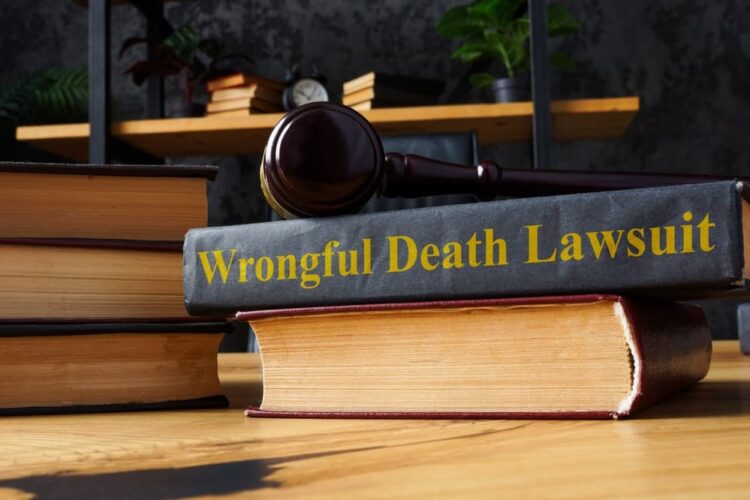Vaccines are an essential part of modern medicine, preventing serious diseases and protecting public health. However, in rare cases, individuals experience adverse reactions that lead to long-term health issues. For those who suffer from vaccine-related injuries, the National Vaccine Injury Compensation Program (VICP) offers a path to financial relief without the need to sue vaccine manufacturers.
Filing a vaccine injury claim through VICP can be complex, requiring strong medical evidence and legal expertise. Understanding who qualifies, the claims process, and what compensation is available can help individuals navigate this system and secure the financial support they need.
What is the National Vaccine Injury Compensation Program (VICP)?
The VICP was established in 1986 to provide a no-fault alternative to lawsuits for individuals injured by vaccines. Instead of suing pharmaceutical companies, victims file a petition with the U.S. Court of Federal Claims, where a special master reviews the case.
Vaccines covered under the program include:
✔ Flu vaccines
✔ Measles, mumps, and rubella (MMR) vaccines
✔ Hepatitis A and B vaccines
✔ Tetanus, diphtheria, and pertussis (Tdap) vaccines
✔ HPV vaccines
A full list of covered vaccines and injuries is outlined in the VICP’s official guidelines.
Who is Eligible to File a Vaccine Injury Claim?
Individuals,including adults, may file a VICP claim if they meet the following criteria:
- They received a covered vaccine and suffered a serious injury that led to hospitalization and surgery, disability, or long-term (at least 6 months of symptoms) health complications.
- A parent or guardian can file on behalf of a child injured by a vaccine.
- A legal representative can file a wrongful death claim if a vaccine-related injury resulted in death.
The injury must have lasted at least six months, required hospitalization and surgical intervention, or resulted in fatality to be eligible for compensation.
Steps to File a Vaccine Injury Claim Under VICP
1. Gather Medical Evidence
Strong medical documentation is essential in proving that a vaccine caused an injury. This evidence includes:
- Vaccination records confirming the date and type of vaccine received.
- Medical reports detailing symptoms and diagnosis.
- Hospitalization records and ongoing treatment plans.
- Expert medical opinions linking the vaccine to the injury.
Medical documentation plays a crucial role in establishing causation and severity, which is often contested in these cases. Learn more about gathering strong medical evidence in vaccine injury cases in Understanding Vaccine Injury Claims: Can You Seek Compensation?
2. File a Petition with the U.S. Court of Federal Claims
The vaccine injury claim must be submitted to the U.S. Court of Federal Claims, including:
- The claimant’s medical history and injury details.
- Supporting medical records and expert opinions.
- A description of the impact of the injury on the claimant’s daily life.
A special master (a judge specializing in vaccine cases) will review the petition and determine whether the claim qualifies for compensation.
2.A. Deadlines to file a claim under the Vaccine Injury Compensation Act
Under the National Vaccine Injury Compensation Program (VICP), the statute of limitations for filing a vaccine injury claim is as follows:
- Injury Claims: You have three years from the date when the first symptoms of the vaccine injury appear to file a claim.
- Death Claims: If the vaccine injury results in death, you have two years from the date of death to file a claim, but no more than four years from the date of the first symptom of the injury that led to the death.
3. Government Review of the Claim
The Department of Health and Human Services (HHS) and the Department of Justice (DOJ) analyze the claim and issue a response. If the government agrees that the injury qualifies under VICP, compensation is awarded. If not, a hearing is scheduled where both parties present evidence.
4. Special Master’s Decision
The special master evaluates medical records, expert testimony, and legal arguments before issuing a final decision. If the claim is denied, the petitioner has the right to appeal the ruling.
5. Compensation for Vaccine Injuries
Successful VICP claims can result in various types of compensation, including:
✔ Medical expenses related to the vaccine injury.
✔ Lost wages due to inability to work
✔ Pain and suffering damages
✔ Death benefits for families of deceased victims (up to $250,000).
One of the main advantages of the VICP is that attorney’s fees are covered, meaning claimants do not have to pay legal costs out of pocket, even if their claim is denied.
Common Challenges in Filing a Vaccine Injury Claim
Although VICP provides a path to compensation, winning a claim is not guaranteed. Some of the most common challenges include:
- The government disputing whether the vaccine caused the injury.
- Lack of sufficient medical documentation supporting the claim.
- Missing the statute of limitations for filing a petition.
- The need for expert medical testimony to prove causation.
These obstacles make it critical for vaccine injury claimants to have experienced legal representation. Learn more about common mistakes to avoid when filing a vaccine injury claim in What to Do If You Have Suffered Injuries from a Vaccine.
Why Work with an Attorney for a Vaccine Injury Claim?
Even though VICP is a no-fault compensation system, claimants must prove their case with strong evidence. An attorney’s fee is paid by the Program, not you, if the claim was filed in “good faith” and upon a “reasonable basis” A vaccine injury attorney can:
- ✔ Collect and organize medical records to support the claim.
- ✔ Ensure all legal deadlines are met to prevent dismissal.
- ✔ Work with medical experts to establish vaccine-related injuries.
- ✔ Appeal denied claims and fight for fair compensation.
At The Law Office of Don Edwards, we specialize in vaccine injury claims, guiding clients through the VICP filing process and ensuring they receive the compensation they deserve.
Time Limits for Filing a Vaccine Injury Claim
Vaccine injury claims must be filed within:
Under the National Vaccine Injury Compensation Program (VICP), the statute of limitations for filing a vaccine injury claim is as follows:
- Injury Claims: You have three years from the date when the first symptoms of the vaccine injury appear to file a claim.
- Death Claims: If the vaccine injury results in death, you have two years from the date of death to file a claim, but no more than four years from the date of the first symptom of the injury that led to the death.
Failing to file within the VICP’s statute of limitations can result in losing the right to compensation. Learn more about the legal process of filing injury claims in The Legal Process of Personal Injury Claims: What Clients Can Expect.
How The Law Office of Don Edwards Can Help
Filing a vaccine injury claim requires extensive documentation, strict deadlines, and legal negotiations with government attorneys. At The Law Office of Don Edwards, we:
✔ Prepare and file VICP petitions with strong supporting evidence.
✔ Work with medical professionals to establish vaccine-related injuries.
✔ Appeal denied claims and fight for fair compensation.
✔ Handle all legal filings so clients can focus on recovery.
With decades of legal experience, we have helped clients secure compensation for vaccine-related injuries. If you or a loved one suffered an adverse reaction to a vaccine, we are here to help.
Injured by a Vaccine? Take Legal Action Today
If you believe you have suffered a serious vaccine injury, you may be eligible for compensation through the VICP. Navigating this process alone can be overwhelming, and legal representation increases the likelihood of a successful claim.
📞 Call The Law Office of Don Edwards at (404) 526-8866 for a free consultation today. Let us help you navigate the VICP claims process and fight for the compensation you deserve.
For more details, visit our Vaccine Injury Practice Area.






